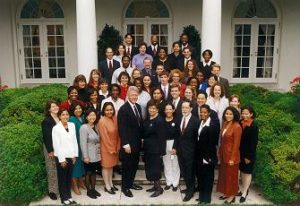This is mark Joseph “young” blog entry #135, on the subject of What Racism Is.
This began as a Facebook thread, but found its way here for several reasons. One is that the issue is important, and in the hierarchy of ephemera that comprises the Internet a web log post has a longer life than a Facebook thread, and so reaches more people over a longer period of time. Another is that most (not all) of those participating in the Facebook thread disagreed; either I failed to communicate the essential point adequately, or there is a fundamental disagreement about the nature and definition of “racism”.

An “ism”, generally, is a set of beliefs or sometimes attitudes expressing itself as a world view and thus impacting the actions of the “ist”, that is, the one embracing the “ism”, or tending toward “ist” actions, those which express the “ism”. There are many–Marxism, socialism, and Nazism; legalism, Gnosticism, Buddhism, Mohammedanism, Taoism. The one perhaps nearest in kind to racism is sexism, and they share some similar features. Both involve using a biological category as a basis for distinctions that are generalizations about the group applied to individuals within it. Sexism is the belief or attitude that one sex is better at some things than the other, when those specific supposed advantages are not specifically linked to the essential elements that are the basis for the distinction between the two sexes. The statement that only women are designed to carry and deliver offspring is not in itself sexist because that is part of the definition of what it is to be female, in humans; the assertion that they therefore should stay home and have babies is sexist, because it places a different obligation on women than on men which is separate from that biological distinction. (It is different in sea horses and some other aquatic life, in which once the female has handled the fertilization of the eggs she provided, she passes them to the male for safekeeping until birth.) It is sexist to assert that men are smarter than women, in part because that is not one of the defining distinctions but in larger part because it is simply not true–men are better on average at certain cognitive tasks (especially space relations), women at others (especially linguistic abilities), and overall intellect is about equal at both the means and the extremes. More difficult is the assertion that men have greater upper body strength–a statement that is true at the means and the extremes, that the male torso is built slightly differently than the female with upper body strength in view, but which is not true in every individual case. So sexism is the attitude that one sex is better than the other in specific ways which are not actually linked to sexual differences, and it can point either direction–the statement that men are terrible at relationships and commitments is sexist not because it isn’t true as a generalization that women are better at such things than men, but because it is not universally true either that all men are bad at these nor that all women are good. A misandrist is just as much a sexist as a misogynist.
Thus a racist is someone who thinks in racial categories and believes that everyone who shares a common racial ancestry automatically has specific traits universal to that group which are not part of the defining traits of that group. Obviously it is true that there are some genetic factors that unify individual races; it is equally true that the pure genome of every race is vanishing from the world (blue eyes have become more rare as a percentage of the population than ever before). It is not sexist racist to state that blacks all have high quantities of melanin in their skin, hair, and eyes, because that is part of the biological definition of negroid anatomy. It is racist to say that all blacks have great rhythm and musical ability, even if it is intended in a complimentary or admiring sense, because it is an untrue generalization based on race.
There is, however, an attitude or notion that only whites can be racist, and that all whites are. Part of my point is that this attitude is itself racist: it generalizes about a group based on racial distinctions to assert that some defect is true about all individual members of the group, and further asserts that it is not true about anyone who is not a member of that group. Racism is seen as a specifically and universally white characteristic. That is not true. Ask any Mexican in the United States whether there are racist blacks. Hispanic subgroups–Mexicans, Puerto Ricans, Cubans, Dominicans–are often racist toward each other. There has long been racism between various white racial subgroups. The grandmother of a college friend of mine was known to have said, “Ya, but vat is a Svede but a Norvegian vith his brains knocked out?” All those Italian jokes we heard as kids are racist; the obstacles they and other immigrant groups such as the Irish faced in employment were expressions of racism against whites–and to the black radio commentator who once opined that all they needed to do was change their names, even those who at that time were not racist could identify ethnic backgrounds by everything from idiolect to pigmentation. The racism against Jews seemingly knows no racial barriers, as they are stereotyped by people of every national and ethnic background, often to the point of violent persecution–and in the main, Jews are white.
In Verse Three, Chapter One: The First Multiverser Novel, in the chapter in which Lauren Hastings meets Joe Kondor, when he opines that the reason she failed to notice that the bird people populating their new world were segregated based on the colors of their feathers is that she is white, it surprises her that he would think it discriminatory of her not to have noticed such a connection, but not to have thought it discriminatory to suggest that it was because she was white. That was because she was not racist–racial categories do not matter to her at all–and he is, but does not recognize it about himself.
When Barrack Obama was elected President of the United States, many thought this marked the end of racism in this country, because a black man had been elected President. Unfortunately, that assessment is itself, once again, racist: if it were true that racism had ended, no one would have observed that the man was black. My children were not at all racist, and my wife and I often found it difficult to elicit from them whether their schoolteachers or classmates were white or black without asking directly, because it was not a category by which they identified people; they offered height, weight, age, hair and eye color, but not race. Not being racist means that in your own mind race is not more than a category of biology which is irrelevant outside of a few mostly medical matters (for example, sickle cell anemia is a genetic disorder specifically linked to the black genome). Yet after his election racism continued, even demonstrated by his own family. We have previously observed how Michelle Obama’s Target story demonstrates her own racism, that she believes a short white woman would have asked her to get something off the top shelf not because she, at five foot eleven inches, is tall, but because she is black. The assumption was, once again, that the woman was racist because she was white, when any child would have recognized that the only racism here comes from that assumption, not from a short person asking a tall person for help.
All of which brings us to the West Virginia story which started this.
I am old enough to remember that it was fairly common, at least in my part of the country, to refer to someone as a “big ape” to mean that he was large and physically awkward or clumsy–lacking physical grace would be a polite way to say it. That’s what the expression means to me, and if I were to call someone an ape–which is, frankly, just plain rude to call anybody anything insulting–that would be my intent. I don’t think that were I to use that particular insult, I would make any distinction based on race, because the expression does not mean that to me and never did.
I am educated enough to know that in the eighteenth and nineteenth centuries it was generally believed, even by many abolitionists, that Negroes were not human, but were the most advanced primates to come out of Africa, eminently trainable and even able to understand and mimic speech. It was as it were an article of faith among the slavery faction, to the point that one Civil War Confederate general wrote in his journal that were it to be demonstrated that blacks could fight in the armies of either side, the South would lose on principle, as that would prove they were in fact human, not domesticated animals, and that it therefore was morally wrong to enslave them. I know that the epithet of being an “ape” or a “monkey” was still in use in the early twentieth century to convey the belief that blacks were sub-human. I have never in my now somewhat longish life actually heard anyone so use it. I would not first think of that meaning were I to hear someone call someone an “ape”, because in my experience the other meaning is still in common use and this one is not, any more than were I to hear someone identified as a “bitch” I would take that in its early meaning of a profligate woman instead of the modern sense of a nasty one.
It might, I suppose, matter that I have lived much of my life north of the Mason-Dixon Line–but only because the men who drew the line had it turn south from the southern edge of Pennsylvania along the western border of Delaware, and so placed New Jersey on the northern side completely. The line along the southern edge of Pennsylvania, if continued eastward, would pass through our state; we are in that sense on the border, and there are enough “rednecks” in the southern reaches of the state that the Confederate flag is not completely absent from personal displays.
Yet it should equally be noted that that same line follows along the northern edge of West Virginia–it, too, is a border state, albeit a southern one, and part of it extends north of that line as defined by the southern edge of Pennsylvania. Where I live in New Jersey today is south of a substantial portion of West Virginia. Historically West Virginia was a slave state and New Jersey a free state, but that was over one and a half centuries ago. West Virginia is not “deep south” like Alabama, and New Jersey is not “remote north” like Vermont and Massachusetts. An expression that is common or uncommon here is probably similarly used as near here as West Virginia. There might still be people in the country using the derogation “ape” to refer to someone as sub-human, but it is the less likely usage.
From this, it appears to me to be at least plausible that the woman in West Virginia who described First Lady Michelle Obama as “an ape in heels” did not mean it in a racial sense, but only in the sense that the nearly six foot tall basketball-playing woman lacks the sort of grace we had in Jacqueline Kennedy or Nancy Reagan or Betty Ford. I can imagine that after she said it via Twitter an electronic gasp passed through the audience and she thought, as many who accidentally say things they did not realize had sexual implications until after the words were out of their mouths, “What did I say?” Maybe someone had to call her attention to the racial meaning of that slur, which was not in her thoughts at all. Then, realizing how people would take what she said, she blushed brilliantly and retracted it.
I could be entirely wrong. People who know this woman might be aware of facts unknown to us, perhaps that she is terribly racist and probably would call a black woman an “ape” in the sense of “sub-human primate”. They might as easily know that she is not at all racist and would have said something like that completely oblivious to its racial implications. We cannot know whether this white woman made a comment she knew was a racial slur, or whether she meant something differently insulting about a first lady who is perhaps athletic but not graceful.
Which brings the second half of the point. Most readers, and indeed the media generally, leapt to the conclusion that because this was said by a white woman about a black woman, it must have been a racial slur. That, though, requires thinking about the situation in racial categories–that is, judging it from a racist perspective. If the comment had been made by a black woman, would we not conclude that she meant awkward? If it had been made about a white man, would we be shouting that calling him an “ape” was clearly a racist attack on his status as a human being? In point of fact, to reach the conclusion that this comment “must have been” racist, you must work from the assumption that because it was said by a white person living south of the Mason-Dixon Line (as it was actually drawn) about a black person, the white person is by default racist and intended it as a racial slur. However, the statement “all whites are racist” is the attribution of a negative characteristic to all members of a class defined by race–and thus a racist statement by definition–and you do not cause it to cease to be racist by limiting it to “all whites living south of the Mason-Dixon Line”.
So I do not know whether the woman who stated that Michelle Obama was “an ape in heels” is racist–but I do know that all the people who, knowing no more than that a white woman in West Virginia made such a statement are insisting that it must have been intended as a racial slur because of who said it, certainly are. If they were not, it would not have occurred to them that the race of the speaker in any way impacted the intent of the statement.
[contact-form subject='[mark Joseph %26quot;young%26quot;’][contact-field label=’Name’ type=’name’ required=’1’/][contact-field label=’Email’ type=’email’ required=’1’/][contact-field label=’Website’ type=’url’/][contact-field label=’Comment: Note that this form will contact the author by e-mail; to post comments to the article, see below.’ type=’textarea’ required=’1’/][/contact-form]








